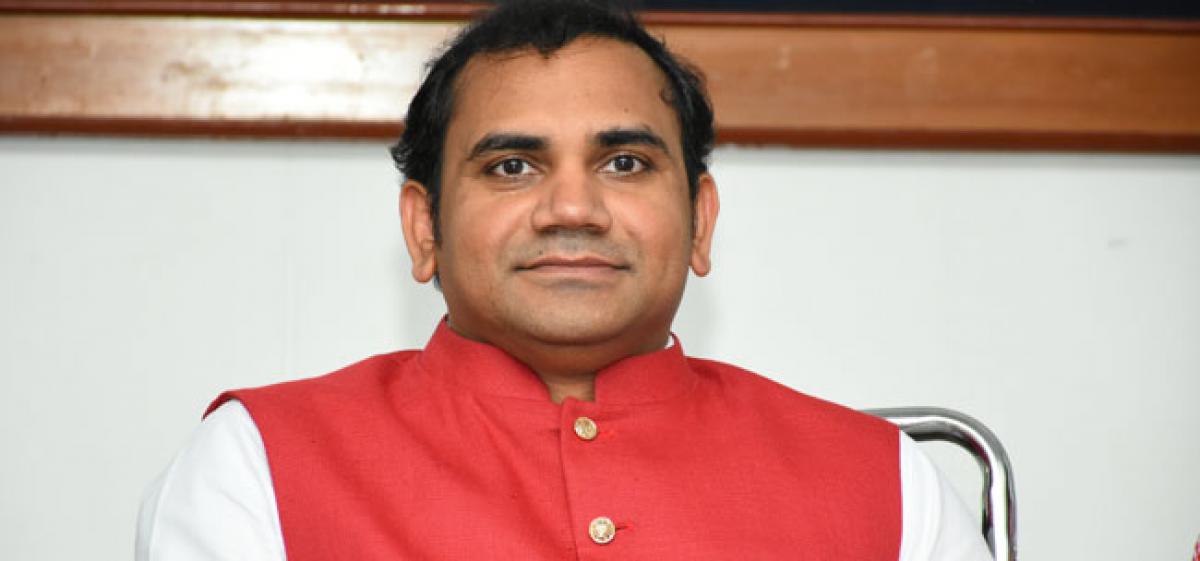After cyclone and floods, basic needs of people should be priority

Cyclone Titli turned the lush green villages on Srikakulam coast into a kind of wastelands with uprooted coconut, destroyed crops and animal carcasses strewn all over The calamity also claimed lives of eight people and affected around 10 lakh people
Srikakulam: Cyclone Titli turned the lush green villages on Srikakulam coast into a kind of wastelands with uprooted coconut, destroyed crops and animal carcasses strewn all over. The calamity also claimed lives of eight people and affected around 10 lakh people.
The news on the low pressure area getting concentrated in the Bay of Bengal reached the officials well ahead by October 9 and the measures began October 1o; First, power was stopped on October 10 in 12 mandals of the Srikakulam district, anticipating massive havoc in these region.
Though officials launched the relief and rescue operations immediately, yet most of them were confined to mandal headquarters. The Chief Minister himself was present in Srikakulam by October 11 morning to speed up the rescue and rehabilitation. All said and done, there are some deficiencies in the pre and post-cyclone scenario.
The plight of affected people cannot be easily understood by the outside world. The deafening gales coupled with downpour and enveloping darkness, can only be experienced to be understood. Imagine the amount of trauma the children and the infants undergo without milk and food for the entire day.
Coastal areas are predominantly inhabited by the fishing and poor people that live in mud houses or houses with corrugated tin sheets. These houses could hardly withstand the cyclonic winds that pass during the peak hours.
What is important during such critical times is advance information. Although print and electronic media bombarded the people with cyclone update, unfortunately it had not reached the coastal communities which are most likely to be affected.
Ham radios and the alternative channels of communication that don’t rely on electricity or the distribution channels should have been explored to give information in advance so that the people get ready for the emergency.
Followed by the wind and the devastation, people in the affected regions had encountered floods due to the rains that lashed the affected region with similar intensity. According to the department of the meteorology, the affected region received 77 cm rain within 48 hours.
Rivers Vamsadhara, Mahendra Tanaya and Bahuda started flowing above the danger mark due to cyclone Titli, as heavy rains lashed the their catchment areas in Odisha. With the flood waters being released from the Gotta Barrage on Vamsadhara at the discharge rate of 1.67 lakh cusecs, the houses were water marooned.
Once the flood water recedes, the houses and surroundings are filled with the mud, poisonous creatures and carcasses, followed by the mosquitoes. It would be impossible and intolerable for the people to withstand and continue there for at least few hours. With water, milk and food in scarcity, it would be unbearable for the people and the children and infants were worst-hit.
Despite the close supervision of various ministers and officials, the relief could not reach the interior villages for obvious reasons; unlike Hudhud cyclone which affected mostly Vizag city, the Titli affected 18 mandals of the Srikakulam and Vizianagaram that are remote.
While the damage in urban areas is confined to the basic infrastructure like roads, in rural areas, the damage directly affected the livelihood of people as crops like cashew, coconut and banana take years for gestation.
In these circumstances, the affected would expect at least the local government officials to visit them and assure them of the basic and essential ingredients like candles, matches, and medicine to cope with the emergency. Since the devastation is massive, the state and the local governments should keep adopt inclusive approach in relief efforts seeking cooperation from one and all like NGOs, volunteers.
Short term measures
No doubt the devastation caused by the nature is unavoidable; however, measures can be taken to provide immediate relief to the people of the region.
Immediate measures to rebuild, and repair the houses should be taken up so that the affected can be saved from the wind and the harsh weather in the aftermath of the cyclone. Although the government has assured Rs 1.5 lakh each for houses completely destroyed, the victims may need at least Rs 3 lakh to restore their shelters.
One astonishing truth that came out in our field visits is that Rs 500 was given to feed the entire village consisting 30 families for vegetables; the affected may be helpless at present.
Measures should be taken up to assure fuel so that the communities can take care of the rest. The aid and the help should reach all the affected irrespective of their party affiliations. Government should explore alternative employment opportunities in the wake of loss to livelihood.
Lest, labor migration may decimate the villages and communities in the absence of income from the horticulture and plantations. Finally, the middlemen are looting the people and forcing them to stay at their mercy.
It is time to strengthen the local bodies and gram panchayats to empower the people at the grassroots so that the Janmabhoomi committees and the other unofficial bodies won’t interrupt the relief measures.
Dr Srinubabu Gedela, completed Ph.D fom Andhra University and Postdoctorate from Stanford University. The research work is part of Pulsus Group CSR activity
By Dr Srinubabu Gedela

